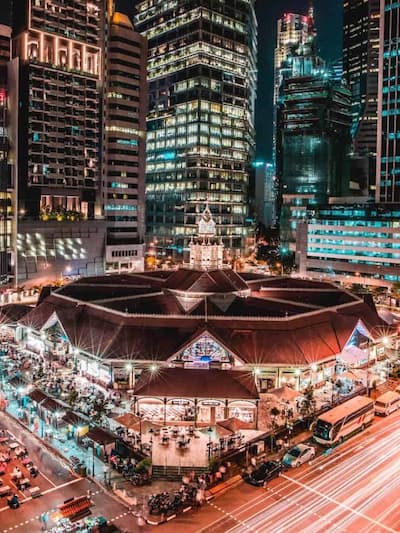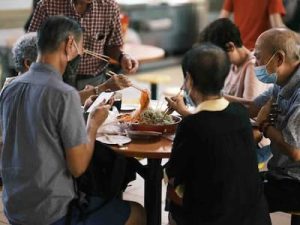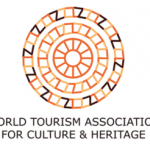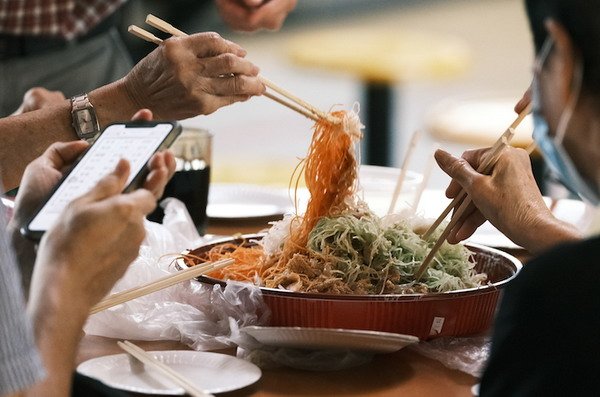Destination Stewardship Report – Spring 2021 (Volume 1, Issue 4)
This post is from the Destination Stewardship Report (Spring 2021, Volume 1, Issue 4), an e-quarterly publication that provides practical information and insights useful to anyone whose work or interests involve improving destination stewardship in a post-pandemic world.
Drives for sustainability may sometimes overlook the endangered arts and traditions that make a place and a culture come to life. The World Tourism Association for Culture & Heritage (WTACH) aims to rectify that. In Singapore, Chris Flynn, WTACH’s CEO, discusses a particularly delicious case – one recently recognized by UNESCO.
Saving Cultural Heritage: The Singapore Hawkers Case
The Amazing Hawkers of Singapore
The Singapore Hawkers and their food stalls are a culinary society of their own making. A community that’s taken shape over decades, if not centuries. The Hawkers hold a sacred place in Singapore history and in the hearts of its people. Now they have gained UNESCO recognition, even as their contribution to the culture of Singapore is threatened.
Can the right kind of tourism help?
Those of us familiar with Singapore and the splendour of Hawker Culture will know and appreciate that it’s more than just somewhere to grab a quick bite to eat. For many it’s a way of life. A rich part of their living culture. A gift handed down from generations past. Put simply, it’s in their DNA.
On December 16th 2020, 24-member UNESCO’s Inter-Governmental Committee decided to recognise Singapore’s Hawker Stalls by adding them to the ‘Representative List of the Intangible Cultural Heritage of Humanity’ – a process that took two years to reach its successful conclusion. UNESCO’s Intangible Cultural Heritage list comprises unique cultural practices and intangible elements that promote the diversity of a place’s cultural heritage. The idea being that it’s not just the bricks and mortar of our world history that’s worth preserving, but those elements of a community who make their place in that history significant and unique.
Culture Worth Sustaining

Singapore’s Lau Pa Sat market, converted to a Hawker Centre in 1972. Photo: Galen Crout
In my opinion the Hawker Centres and their array of food stalls are Singapore’s equivalent of the great British Pub. A place to meet family and friends. To gather and chat or gossip about your day. Tell stories. Reminisce. It’s not about being one of the crowd. It’s about being part of something bigger than yourself.
Even for someone like me who only gets to inhale the magical smells and taste the skills of the Hawker’s art every once and a while, I know it goes deeper than that. It’s like a belief system. A place that offers sanctuary though food and good cheer. Somewhere you know you’ll be welcome and leave more content than when you arrived.
The Hawkers trade – providing quality nutritious food at affordable prices – is a resource traditionally viewed as a critically important, necessary part of Singaporean life. So the hawkers have as much right to be placed on the UNESCO list as any stone monument or indigenous people.
The Threat
Hidden in the shadows is a downside to this story. Whereas once Hawker vending was viewed as a respected profession or lineage for families to inherit and continue, the attraction of this worthy craft is wilting. If things don’t change, and change quickly, there’s a very real threat the Singapore Hawkers could soon become a thing of the past.
Today the increasing cost of fresh ingredients presents a challenge. So too does age. It appears that younger generations are foregoing the opportunity to follow in their ancestors’ footsteps, unwilling to accept the long hours needed to become a profitable Hawker vendor. With an average vendor age of 59, a tally that continues to grow in the wrong direction, we may very well be witnessing the last hurrah of the Hawkers skills.
The Opportunity

Family dining at a Hawkers Centre. Photo: Galen Crout.
So, now the question is whether this prestigious recognition bestowed by UNESCO could offer a new and very timely lifeline for the Hawkers. Or maybe the impetus needed to explore new ways of protecting, preserving, and re-shaping this culinary art form in ways the traditional practitioners could never have imagined. The simple answer is, yes!
As a first step the Singapore Government celebrated the UNESCO inscription with an 18 Day festival in celebration of the Hawkers’ art and position in local community. Billed as the SG HawkerFest and launched on 26 December 2020, the concept behind the festival was for Singaporeans to thank and show appreciation to all hawkers for their nearly century-long service to the community. A key element of the celebrations was the Hawkers Succession Scheme, a project for facilitating continuation of the Singapore Hawker trade. It featured official invitations to retired and veteran hawkers to pass down their stalls, recipes, culinary skills and practices to aspiring successors.
The only question I have regarding the SG HawkerFest is why this has been planned and executed as a one-off event? Why not expand this idea to become an annual festival to drive both local residents and visiting tourists to Hawker Centres all over Singapore, where they can watch, learn and participate in the culinary experience that is the essence of living, breathing culture?
Other destinations around the world, seeing declines in appreciation for their cultural heritage, are launching pro-active incentives to reignite interest in local history and traditions. In the Philippines, for instance, the government has given local residents of Manila free entry to all museums, art galleries, cultural centres, events, and festivals. In Egypt, a ‘Memory of the City’ initiative is designed to preserve the urban and social history of local neighbourhoods. Seen as a new vision for cultural heritage tourism, guided tours are conducted through the streets of these historic areas to give a deeper, richer appreciation of the significance these communities have played in the past. What’s more, the project drives revenues and income for residents.
By securing its rightful place on the UNESCO World Heritage stage, Singapore now has an opportunity to attract a new generation of visitors who seek more immersive, authentic and culturally rich experiences. People who are willing to pay a higher, more equitable price for these experiences. Who have a genuine desire to give back to local communities, recognising the true value they play in protecting and preserving local treasures. People who want to be travellers, not just tourists.
With celebrations of UNESCO recognition fading into the distance, it’s time for the real work to begin. It’s not good to sit back and hope that visitors will seek and out these extraordinary culinary pleasures for themselves. Or that these temples of Singaporean street food will continue to exist just because, well, they always have.
At times like this, opportunity and potential need a little push.
The UNESCO recognition is a conversation starter. Now is the time for planning, preparation, policy and people. A time to engage fully with the Hawker communities. To listen, learn and appreciate where they are, where they came from and where they can and should be in the future. It’s a time to hear their story. And to act on it.

With the world having been in lockdown due to the pandemic, there is a window for Singapore to take positive steps to re-grow the Hawker experience in new and exciting ways. To give back its dignity and rightful place in Singaporean hearts by offering it to a new and eager audience of travellers. With people keen to share their experience with other likeminded souls around the world, the delightful art of the Singapore Hawkers will flourish for generations to come.
And by doing so, visitors like me will still get to pass through once in a while to inhale the past, whilst celebrating its future.
About DSR Contributors
Volunteer contributors are welcome to the Destination Stewardship Report. Contact us with your proposals and ideas.





